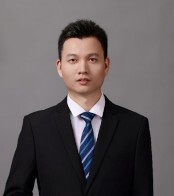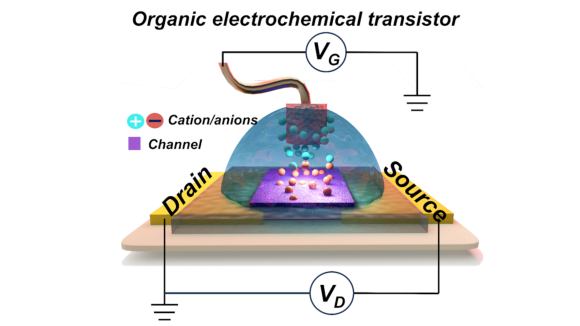Jianfeng Ping, PhD, Zhejiang University, China
 Jianfeng Ping is a Professor of the College of Biosystems Engineering and Food Science at Zhejiang University. He obtained his B.S. degree at Zhejiang University of Technology, and completed his Ph.D. at Zhejiang University. He then moved to Nanyang Technological University as a research fellow. On January 2016, he joined Zhejiang University as a ZJU-100 Young Professor. Dr. Ping’s current research focuses on functional materials, electrochemical sensors, and flexible electronics.
Jianfeng Ping is a Professor of the College of Biosystems Engineering and Food Science at Zhejiang University. He obtained his B.S. degree at Zhejiang University of Technology, and completed his Ph.D. at Zhejiang University. He then moved to Nanyang Technological University as a research fellow. On January 2016, he joined Zhejiang University as a ZJU-100 Young Professor. Dr. Ping’s current research focuses on functional materials, electrochemical sensors, and flexible electronics.
Leong Wei Lin, PhD, Nanyang Technological University, Singapore
 Dr. Leong received her Bachelor degree in Electrical and Electronic Engineering and Doctor of Philosophy in Materials Science and Engineering from Nanyang Technological University (NTU) in 2004 and 2009 respectively. She performed her postdoctoral fellowship under Nobel Laureate Professor Alan Heeger in University of California, Santa Barbara (UCSB), working on polymer and small molecule solar cells, where she was part of the team to achieve world record efficiency. In 2012, she joined Institute of Materials Research and Engineering (IMRE), working in the area of printed electronics and photovoltaics. In July 2016, she joined the School of Electrical and Electronic Engineering as an Assistant Professor and was promoted to Associate Professor in Sep 2022. Her research focuses primarily on developing organic/hybrid semiconducting devices with features of high flexibility, conformability, printability to enable energy-autonomous systems for digitizing the human body and richer human-robot interaction.
Dr. Leong received her Bachelor degree in Electrical and Electronic Engineering and Doctor of Philosophy in Materials Science and Engineering from Nanyang Technological University (NTU) in 2004 and 2009 respectively. She performed her postdoctoral fellowship under Nobel Laureate Professor Alan Heeger in University of California, Santa Barbara (UCSB), working on polymer and small molecule solar cells, where she was part of the team to achieve world record efficiency. In 2012, she joined Institute of Materials Research and Engineering (IMRE), working in the area of printed electronics and photovoltaics. In July 2016, she joined the School of Electrical and Electronic Engineering as an Assistant Professor and was promoted to Associate Professor in Sep 2022. Her research focuses primarily on developing organic/hybrid semiconducting devices with features of high flexibility, conformability, printability to enable energy-autonomous systems for digitizing the human body and richer human-robot interaction.
Sahika Inal, King Abdullah University of Science and Technology, Saudi Arabia Dr. Sahika Inal is an Associate Professor of Bioengineering with affiliations in Electrical and Computer Engineering and Materials Science and Engineering at King Abdullah University of Science and Technology (KAUST). She leads the Organic Bioelectronics group at KAUST. Prior to joining KAUST, Sahika was a postdoctoral fellow in the Department of Bioelectronics at the Center of Microelectronics of Provence of the Ecole Nationale Supérieure des Mines de Saint-Étienne (Gardanne, France). She received her Ph.D. in Experimental Physics from the University of Potsdam (2013, Potsdam, Germany). She is an Associate Editor of Biosensors & Bioelectronics (Elsevier) and serves on the editorial boards of the Journal of the Royal Society Interface (Royal Society Publishing) and Sensors & Diagnostics (Royal Society of Chemistry). Her research interests cover organic electronic materials and devices that can address research and clinical health monitoring and therapy needs. She is particularly interested in ionic-electronic conduction in organic electronic materials and explores the potential of these materials for recording small biological signals and modulating biological events.
Dr. Sahika Inal is an Associate Professor of Bioengineering with affiliations in Electrical and Computer Engineering and Materials Science and Engineering at King Abdullah University of Science and Technology (KAUST). She leads the Organic Bioelectronics group at KAUST. Prior to joining KAUST, Sahika was a postdoctoral fellow in the Department of Bioelectronics at the Center of Microelectronics of Provence of the Ecole Nationale Supérieure des Mines de Saint-Étienne (Gardanne, France). She received her Ph.D. in Experimental Physics from the University of Potsdam (2013, Potsdam, Germany). She is an Associate Editor of Biosensors & Bioelectronics (Elsevier) and serves on the editorial boards of the Journal of the Royal Society Interface (Royal Society Publishing) and Sensors & Diagnostics (Royal Society of Chemistry). Her research interests cover organic electronic materials and devices that can address research and clinical health monitoring and therapy needs. She is particularly interested in ionic-electronic conduction in organic electronic materials and explores the potential of these materials for recording small biological signals and modulating biological events.

